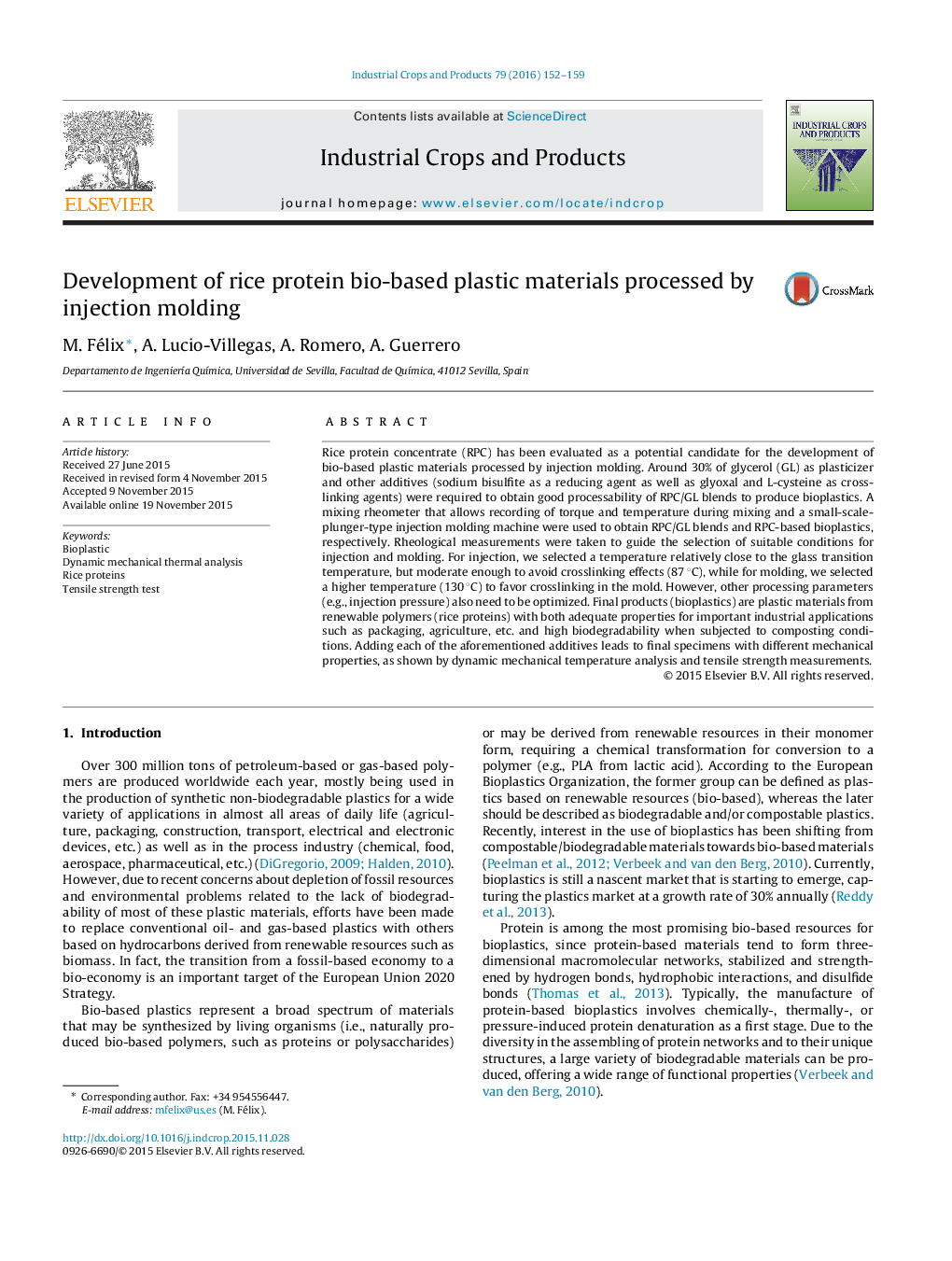| کد مقاله | کد نشریه | سال انتشار | مقاله انگلیسی | نسخه تمام متن |
|---|---|---|---|---|
| 4512750 | 1624831 | 2016 | 8 صفحه PDF | دانلود رایگان |
• Bioplastic material from rice protein concentrate (RPC) can be successfully obtained.
• Bioplastics are achieved by thermoplastic mixture and subsequently injection molding.
• Rheological and DSC measurements allow selecting suitable injection conditions.
• Reducing agent (SB) leads to lower an increase in blend processability.
• Pro-crosslinking agents (GLX and Cys) enhance material elongation properties.
• Bioplastics exhibit high biodegradability under composting conditions after 21 days.
Rice protein concentrate (RPC) has been evaluated as a potential candidate for the development of bio-based plastic materials processed by injection molding. Around 30% of glycerol (GL) as plasticizer and other additives (sodium bisulfite as a reducing agent as well as glyoxal and L-cysteine as cross-linking agents) were required to obtain good processability of RPC/GL blends to produce bioplastics. A mixing rheometer that allows recording of torque and temperature during mixing and a small-scale-plunger-type injection molding machine were used to obtain RPC/GL blends and RPC-based bioplastics, respectively. Rheological measurements were taken to guide the selection of suitable conditions for injection and molding. For injection, we selected a temperature relatively close to the glass transition temperature, but moderate enough to avoid crosslinking effects (87 °C), while for molding, we selected a higher temperature (130 °C) to favor crosslinking in the mold. However, other processing parameters (e.g., injection pressure) also need to be optimized. Final products (bioplastics) are plastic materials from renewable polymers (rice proteins) with both adequate properties for important industrial applications such as packaging, agriculture, etc. and high biodegradability when subjected to composting conditions. Adding each of the aforementioned additives leads to final specimens with different mechanical properties, as shown by dynamic mechanical temperature analysis and tensile strength measurements.
Figure optionsDownload as PowerPoint slide
Journal: Industrial Crops and Products - Volume 79, January 2016, Pages 152–159
